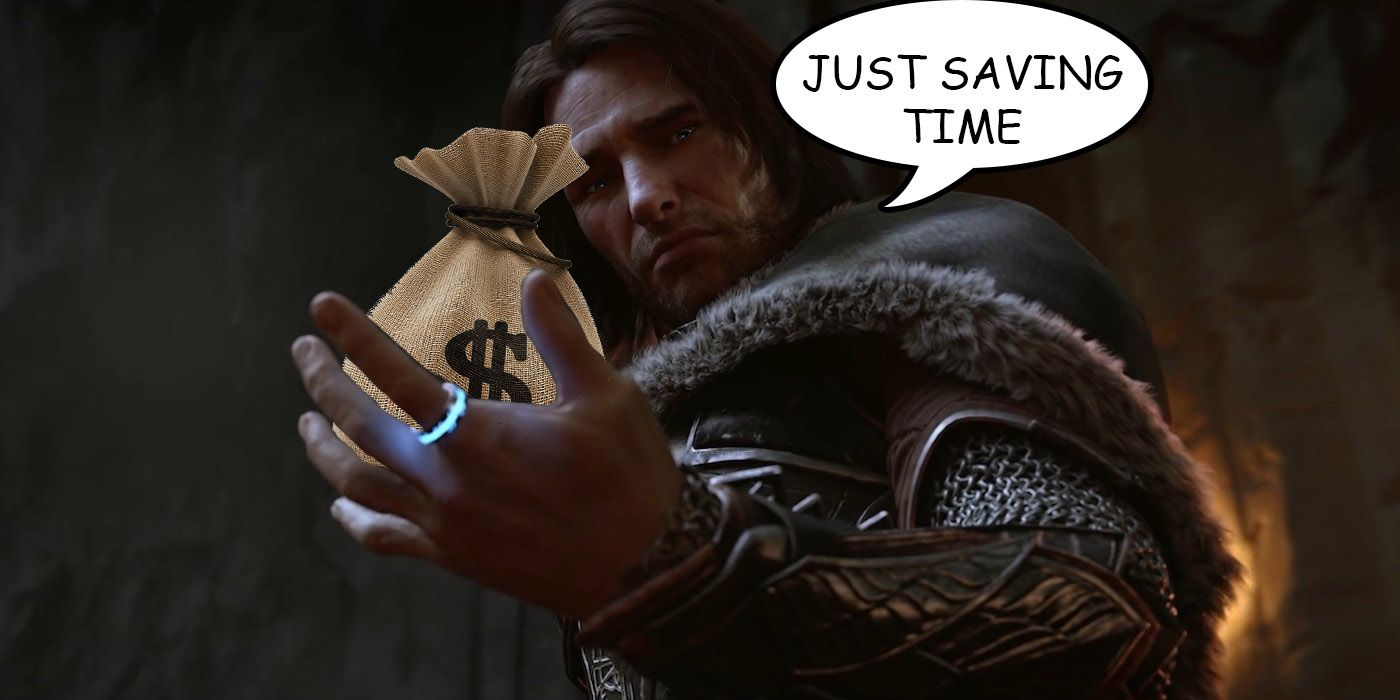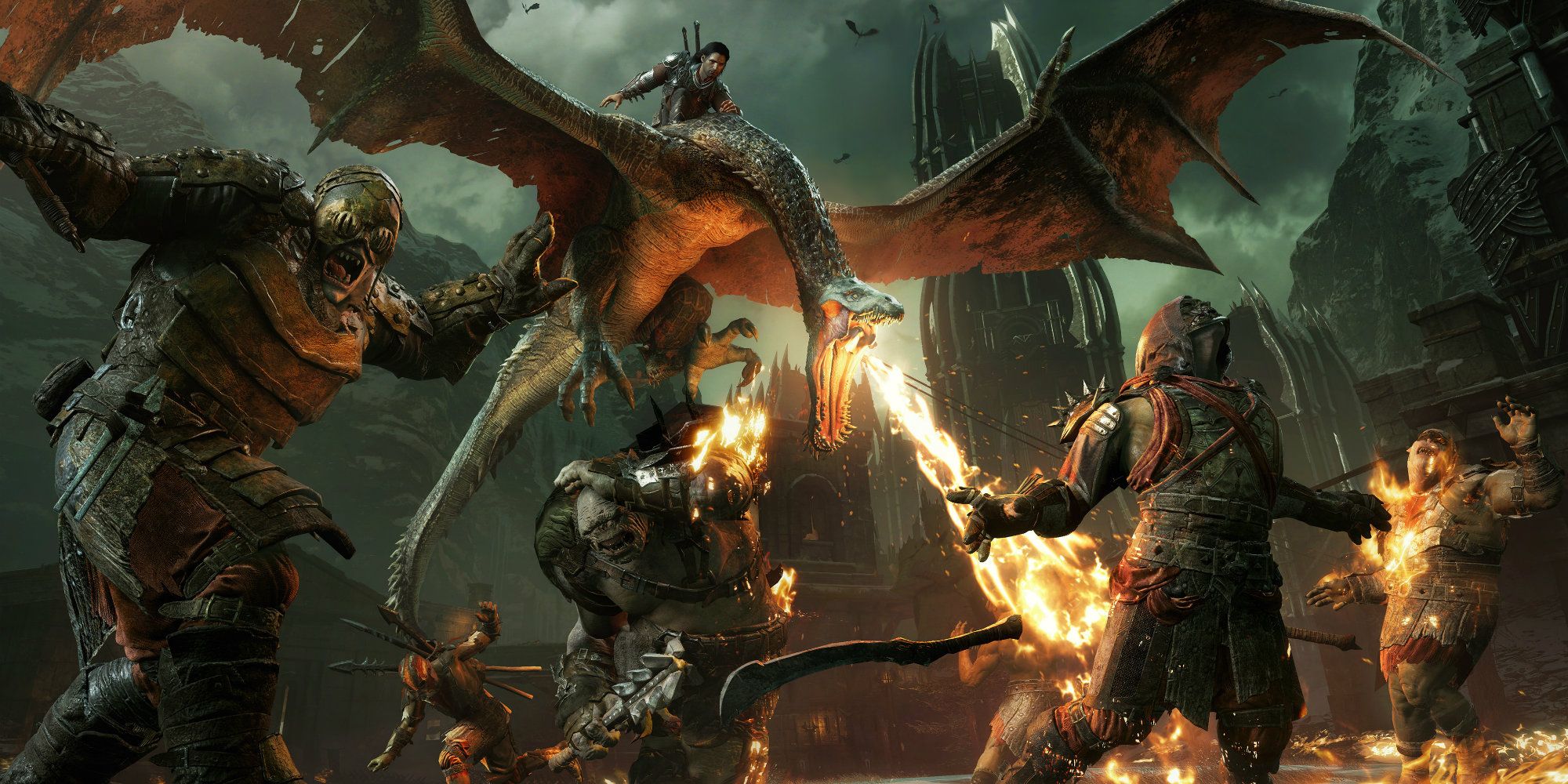Update: WBIE opted to remove microtransactions in Shadow of War. Surprise!
Middle-earth: Shadow of Mordor was a surprise hit, a game of the year contender even, that gave developer Monolith Productions and publisher Warner Bros. Interactive Entertainment a new triple-A game franchise with unique mechanics, but with the sequel Middle-earth: Shadow of War, the companies are taking some money-hungry actions that may hinder its success before it even releases.
In a move that can only be described as off-putting, Monolith's "Community Specialist" posted an official announcement on the Shadow of War forum titled Introducing the Market. And in a few short paragraphs, the company combined the much beloved and innovative Nemesis System of the first game, and infused it with microtransactions. Yes, the single-player sequel Middle-earth: Shadow of War now embraces a nonsensical pay-to-win model.
Related: Middle-earth: Shadow of War Pushed Back to October
Through the Market, players can purchase these things via two different types of currency: Mirian (in-game currency) and Gold (acquired through community events and by purchasing with real-world money).
- Loot Chests contain Gear (weapons and armor) of varying rarity. Equipping and upgrading these weapons and armor enhance Talion’s character abilities. Loot Chests can also contain XP Boosts that help level up Talion faster.
- War Chests provide Orc followers of varying rarity to help forge a strong army. They can also contain Training Orders to level up and customize Orc followers.
- XP Boosts are consumables that help level up Talion faster.
- Bundles package up Loot Chests, War Chests and Boosts together at a great value.
The post included the disclaimer "No content in the game is gated by Gold. All content can be acquired naturally through normal gameplay," and later explains that Gold does not give players an advantage in the game, only that it "saves time." We can't seem to reconcile these two things since their intention with gold is to let players buy more loot, to be better geared up, and to grant them more Orcs for their army. How is that not an advantage? Why would players need to "save time" playing a game they paid for by... paying more? Is it designed to be slow?
"By simply engaging with the world and playing through Middle-earth: Shadow of War, you earn items like Gear for Talion and unique Orcs for your army. These are the same items that are found in the Market within Loot Chests and War Chests. Gold merely allows you to get your hands on them immediately, cutting down some of the additional time that would have been spent winning more battles, tracking nemeses, completing quests and assaulting fortresses."
What?
Of course this hasn't gone over well with gamers and fans, and it shouldn't. This is not one of those optional things that players can avoid. As we understand it, there is no version of Middle-earth: Shadow of War (a full-retail priced game, mind you) that isn't built with single-player microtransactions, grinding, and what's essentially gambling (pay real-world money for a chance at really good time-saving things) built into it. There's another forum thread dedicated to answering questions about the market, and includes many responses from community mods along the lines of "you don't have to use the market," but clearly this is a game now built to have players grind or pay.
Here's an idea: to really save time (and money), just don't play this game. This system, which boils down to monetizing bad game design, sounds awful and it's a bad idea to let WBIE and Monolith set this precedent. This type of loot system is hurting too many games (see: For Honor and Gears of War 4). I'm out.


